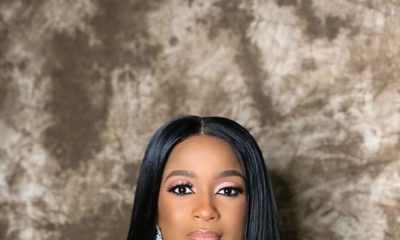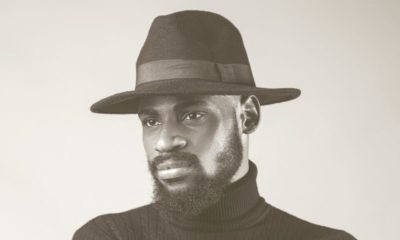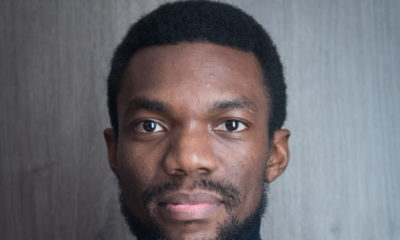News
Pharmacist, Writer & Entrepreneur! Blessing Mary Ocheido is the Wheelchair User Advocating for Disability Rights
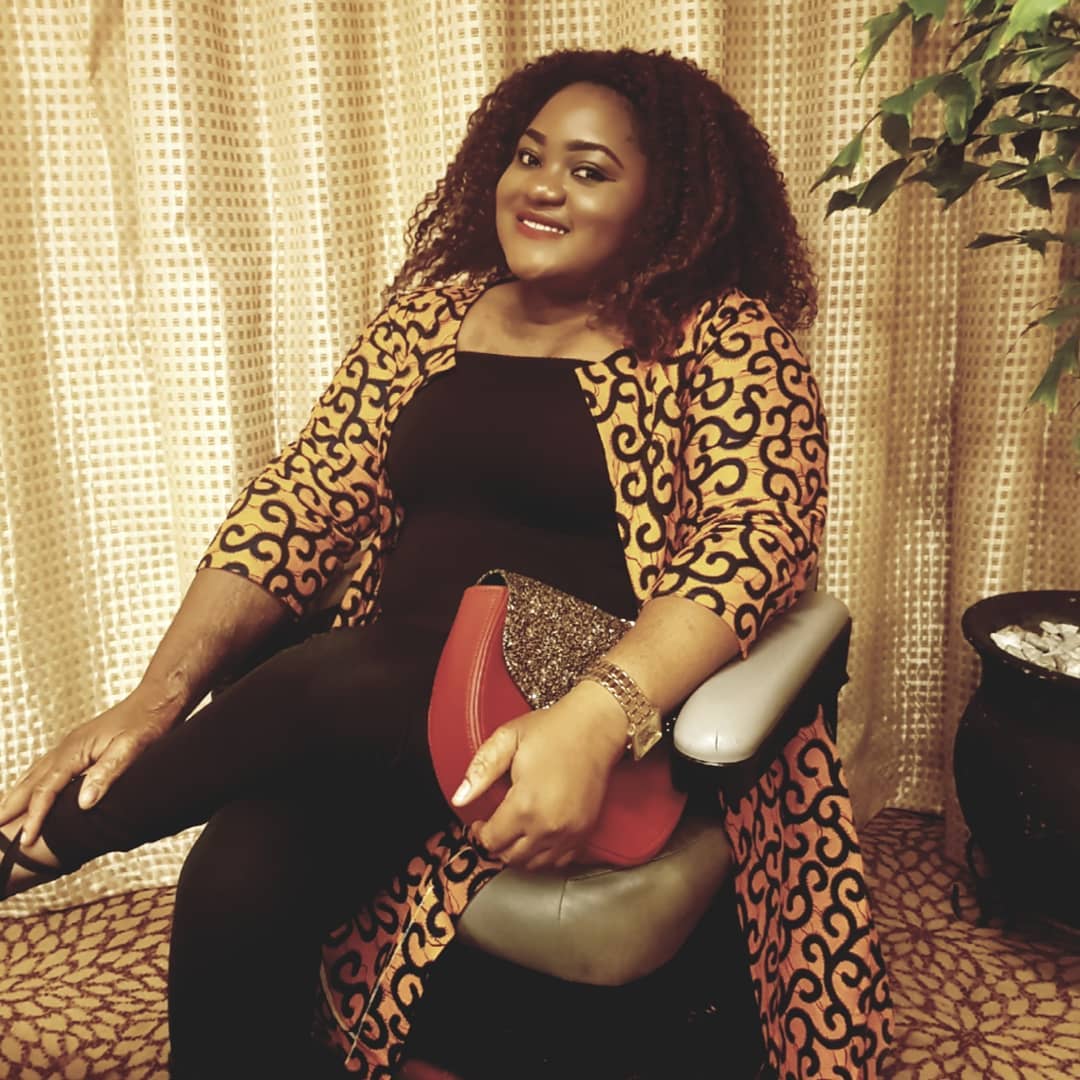
When Blessing Mary Ocheido was two years old, she fell ill and was taken to the hospital where she was administered an injection. Shortly after, the site of the injection began to bleed. She was taken back to the hospital and the doctor said it’s normal and everything would be alright.
They went back home, and at home, she fell down and just couldn’t walk again. The fall had affected her sciatic nerve and she became paralysed from the waist down.
Then began her struggle. As a child, she wanted to grow up “to write bestsellers… page turners that make their way all around the world,” she said. She also “wanted to do anything that required me to help children. So, at one point, I wanted to be a paediatrician.”
“I had a lot of things I wanted to do. I wanted to be in the arts, at the same time, I wanted to do science. One thing that remained constant was my love for writing and for improving every community I find myself in and just simply finding little ways to make people’s lives better and happier,” she said.
Her Chemistry teacher nudged her towards studying Pharmacy, and she decided to pursue that instead. But achieving that goal came with its own challenges, considering she’s disabled.
“I was lucky enough to be born to parents who held education in high esteem and who did not see me different from my siblings. They ensured I got the same level of education and that nothing held me back. But then, some schools basically shut their doors in my face. I think I’m one of the lucky ones because I still went on to graduate as a pharmacist. Other people like me do not have the same kind of support I have – from my family, to my community, and the kind of education I got,” she added.
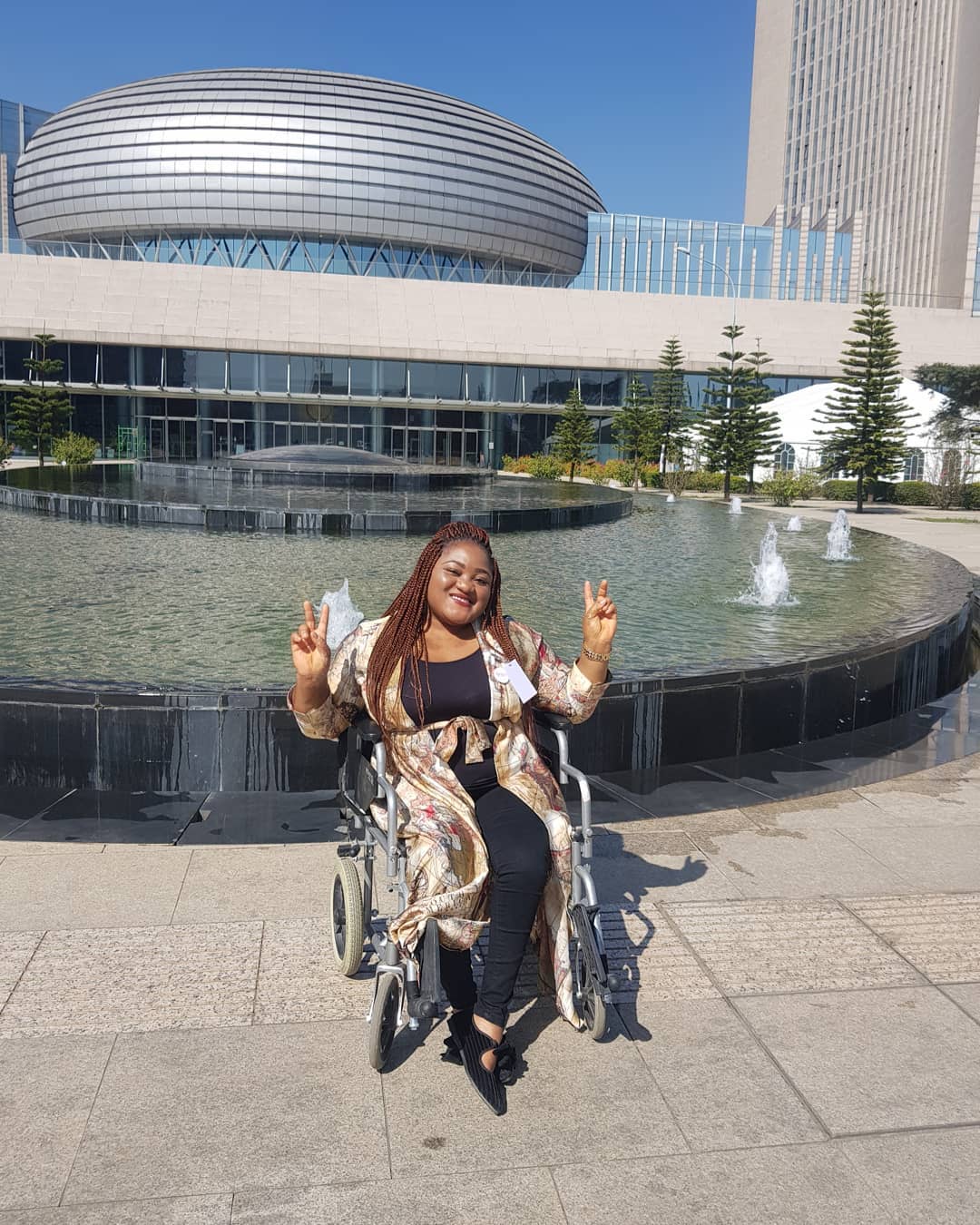
Growing Up Disabled
For Blessing, it “has to be the most challenging thing” she’s ever experienced and “probably still experience till this day,” she said.
Thankfully, her parents didn’t treat her differently. They loved her and gave her the same opportunities as her siblings. But she understands that she’s one of the lucky ones.
Narrating one experience in a Benue community, Blessing said: “… we spoke to community leaders and families to allow us speak to their children, because some of these children are hidden because they’re seen as objects of shame. Maybe a punishment from God or something. They’re not allowed to communicate with others or go to school or go to public places.”
She went through primary and secondary school without that much of a challenge, and she had friends who were willing to help move her around in her wheelchair. But things took a different turn when she wanted to get into the university.
One school told her she could not be admitted because they had mandatory physical exercise sessions every weekend, and they were sure she couldn’t participate.
“Living in Nigeria with a disability is excessively difficult. Yes, it’s not exactly easy anywhere but in Nigeria it’s more difficult because the society is not structured to accommodate people like me. I wasn’t born with a disability. I’ve struggled to access public buildings or transport systems. Even people’s perception towards persons living with disability has been very underwhelming.”
She’s had to struggle with her walker, climbing flights of stairs to attend classes on the topmost floor of her school. Her classmates have had to carry her on their backs sometimes and some lecturers were practically angry with her “for having a disability and coming to school.” She had to find ways to install ramps around school buildings, hostels and in her private accommodation in school.
People have thrown money at her, thinking she was begging for alms, because she was in her wheelchair on the streets. “Even getting people to believe that I was able to do what other people could do, pursue an education, and just be a human being, was a struggle,” she said.
But Blessing persisted, went through school, and graduated from Ahmadu Bello University with a degree in Pharmacy.
Today, she’s helping people with disabilities live their best lives and achieve whatever goal they set their minds to achieve.
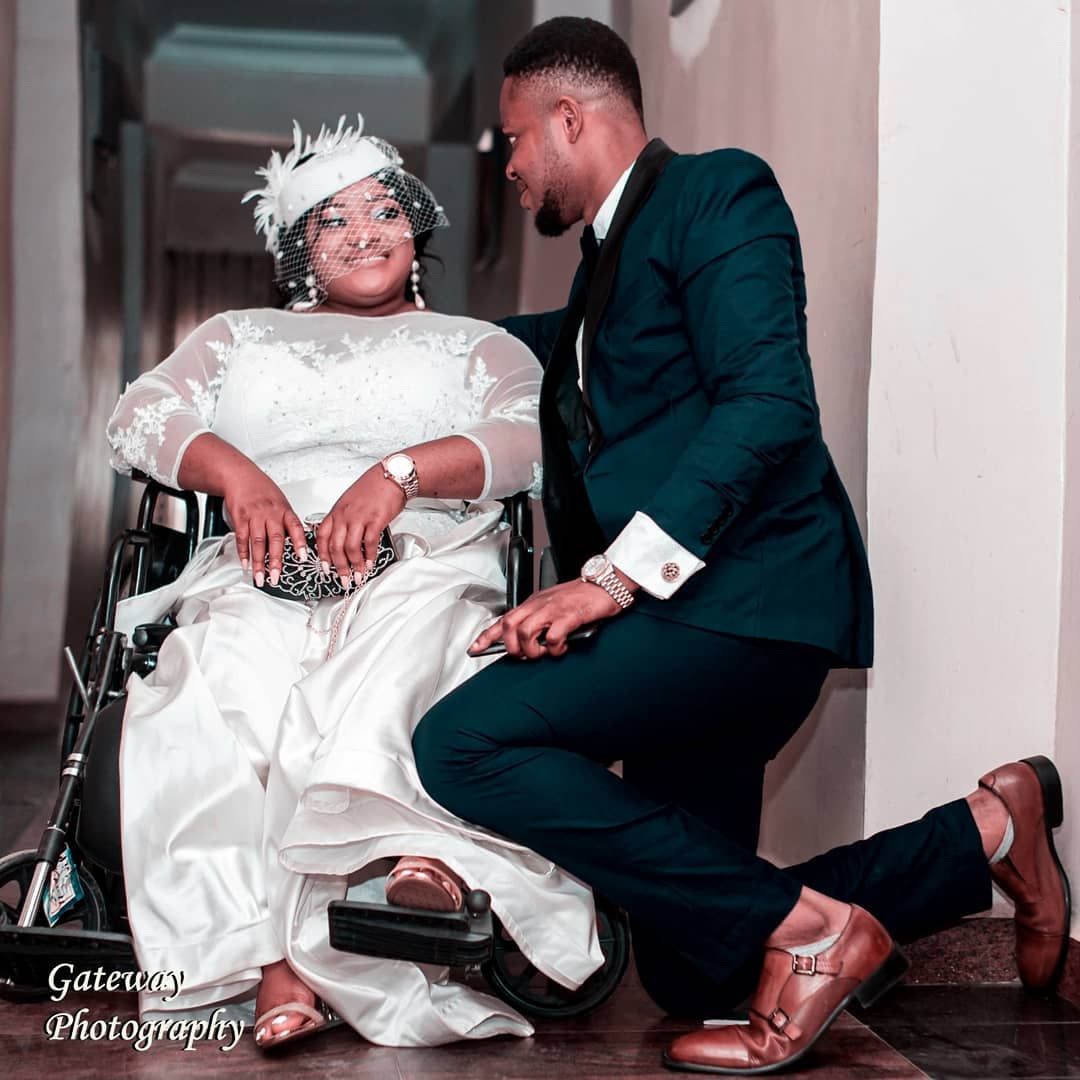
Blessing and her husband, Victor
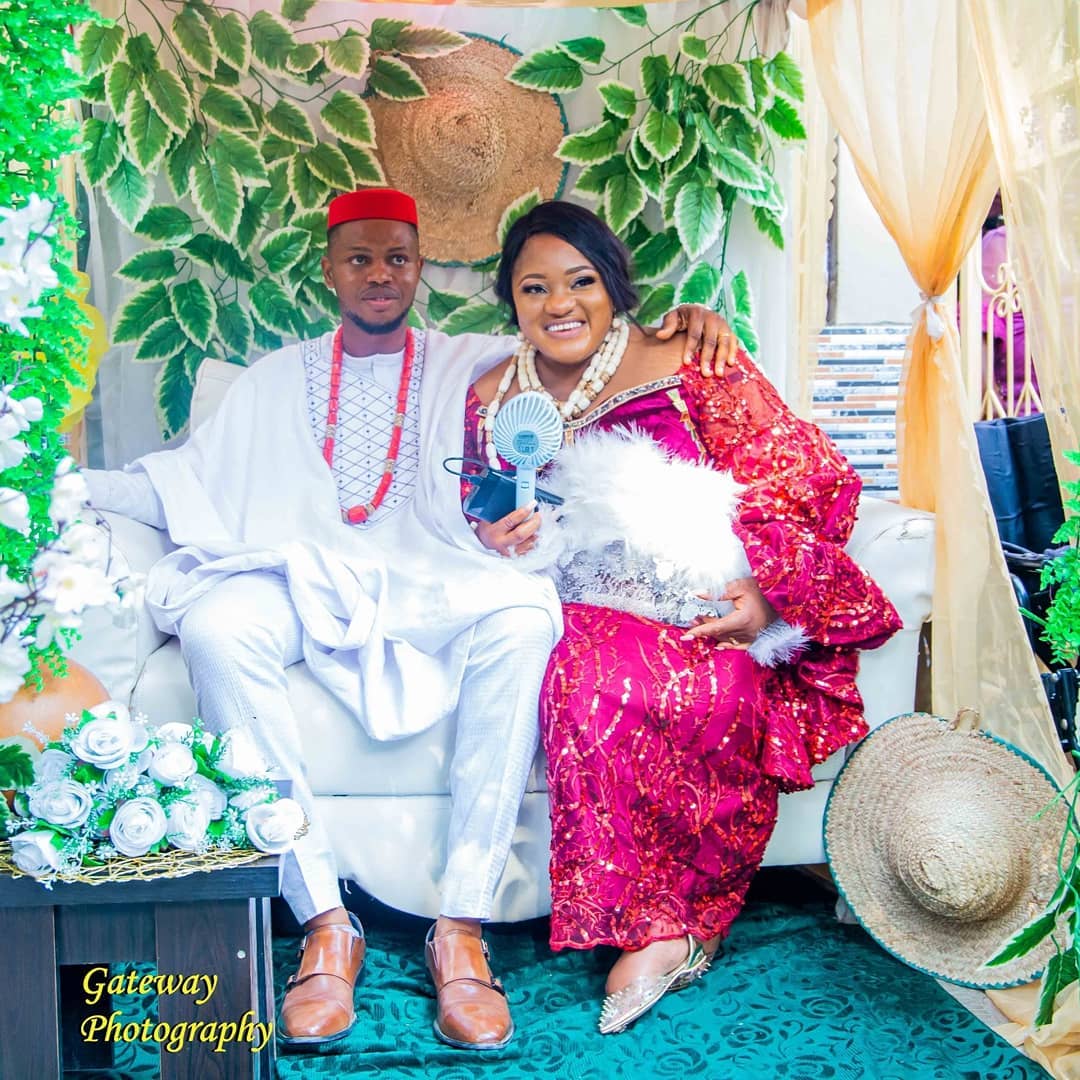
Blessing and her husband, Victor
Living her Dreams & Advocating for Disability Rights
Blessing, who currently works for the Federal Government of Nigeria in Abuja, is currently fulfilling her childhood dream of being a writer. She runs the Marie Bee Academy – which offers online services for tutorials for English (as a second language), IELTS, SATs, e.t.c. She also provides writing and editing services as well as consultation services for people seeking to migrate for work and school.
Blessing, alongside some of her friends, founded Platinum Interventions Care Initiative to push for the rights of people living with disabilities, women’s rights as well as children’s rights.
“It was set up in 2017 by myself and 3 other young people. We wanted to tackle some ills in society in our own little way. Eventually, we’ve grown to a point where we’ve been able to set up structures to help people with disabilities: installing ramps in public buildings (over 100 ramps installed so far); distributing assistive devices; holding stakeholder meetings on the implementation of the Disability Rights Act as well as awareness marches on the same. We’ve also had ICT training for people with disabilities. There’s so much we’ve done over the years to ensure that people with disabilities, especially women and children, are carried along, their rights are protected and that they’re financially empowered, so that they can lend their voices in the matters that concern them,” Blessing said.
“Our team is made up of 7 people. We’re mostly volunteers because there’s no financial backing to employ full staff. We just do it out of our conviction and passion for community building and for improving the lives of people with disabilities, as well as women and children generally.”
Blessing is also the convener of #RampUpNigeria, an initiative to install access ramps across the country to ease movement for people who use wheelchairs or other assistive devices.
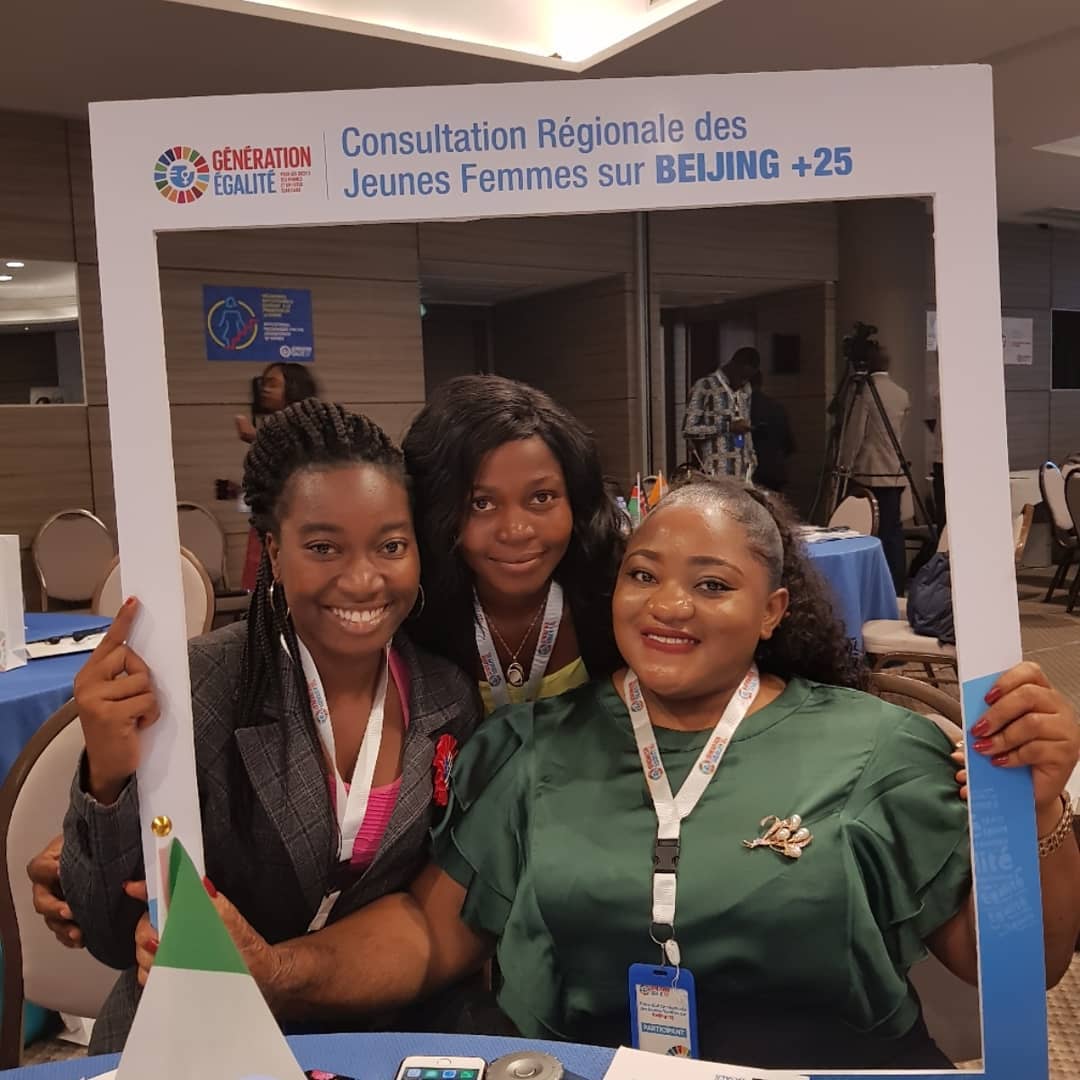
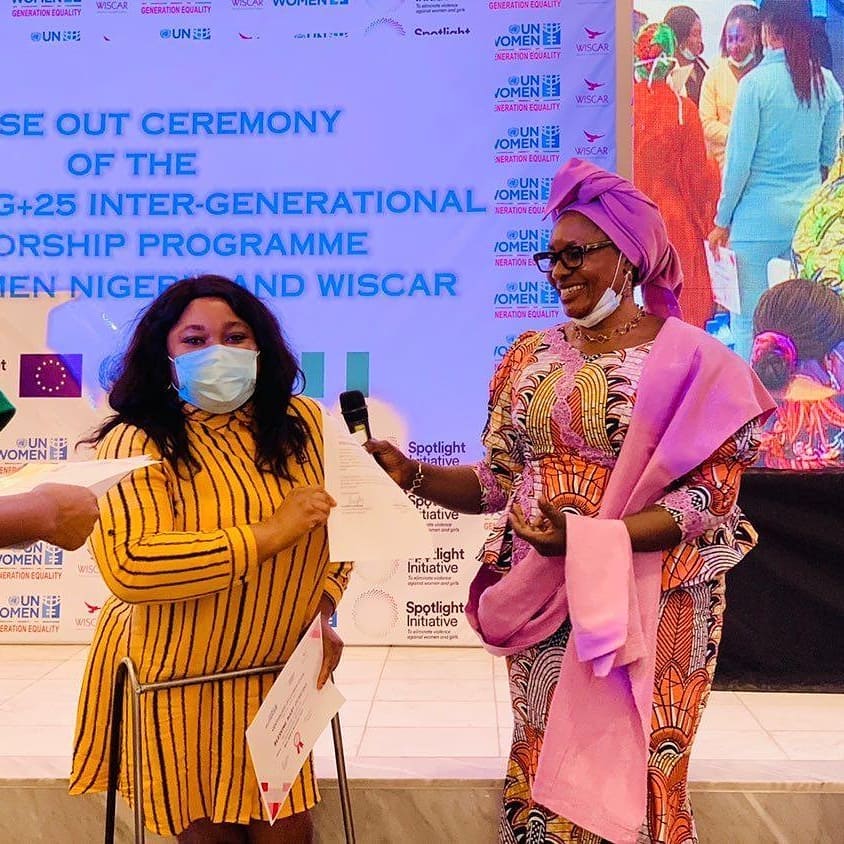
Challenges Running Platinum Interventions Care Initiative
A major challenge for Blessing and her team is in the area of funding. And while they’ve gotten some grants to carry out their projects, they’ve had to do most of their work out of pocket and it has limited their impact. “We stay hopeful and we continue to ensure that we do not give up and do what we can for the community.”
“Another challenge is with people’s mindset when we try to educate them on disability rights. We’ve had people shut their doors in our faces, people speak rudely to us, and a few threatened us,” she added.
However, Blessing and her team have had “massive support from individuals who volunteered their time to our cause; going out for outreach with us, sometimes to villages and remote places to reach out to people with disabilities.”
Impact
“Every single work we’ve done has been impactful,” Blessing said, adding that “they come with fun memories because of our passion going into it and we’re grateful for what we’ve done so far.”
But there are two incidents that stood out for Blessing:
“The first is the case of the young man we met at Government College Nyanya, who was using a manual wheelchair to attend school from a very far community. When we found him struggling, but with a passion to go to school, we decided to intervene. We ramped up the entire school just to make sure that he could get around without having to leave his wheelchair. We also got him a customised motorcycle (made in such a way that it cannot trip over) so he could drive himself from home to school without stress. That’s one of the most impactful things we’ve done.”
“And then, during the COVID-19 pandemic, we reached out to remote communities in Benue and Nasarawa states. In Benue state, we went to some really hidden places, places where people would normally not care to go to because we realised that people with disabilities in that community did not have visibility. So, we spoke to community leaders and families to allow us speak to their children, because some of these children are hidden because they’re seen as objects of shame. Maybe a punishment from God or something. They’re not allowed to communicate with others or go to school or go to public places. We were able to gather a lot of young women and provide free ICT training for them for 2-3weeks as well as provide assistive devices for those who needed them.”
“This was one of the most important works we did for me because we realised that after the COVID-19 lockdown, many people were stranded at home and could only work online and many people with disability were cut off from this change as they didn’t have this knowledge. They were also not able to participate in online fora.”
Blessing and her team are very proud of the work they’ve done so far, and it’s something “we wished we could continue to do – training people with disabilities and empowering them to achieve their goals,” she said.
“As a person with disability, I understand that one of the most challenging things is having to depend on other people for our sustenance. This is why I’m always focused on accessibility and mobility devices as well as financial empowerment, so people with disabilities can have a say over their lives. This also reduces incidences of sexual and domestic violence because they can cater to themselves and their young ones. These are the things we want to continue to do, especially in remote and underserved areas in the country. If we can get help in this area, it’ll go a long way to train more women and set up small businesses for them that they can run on their own.”
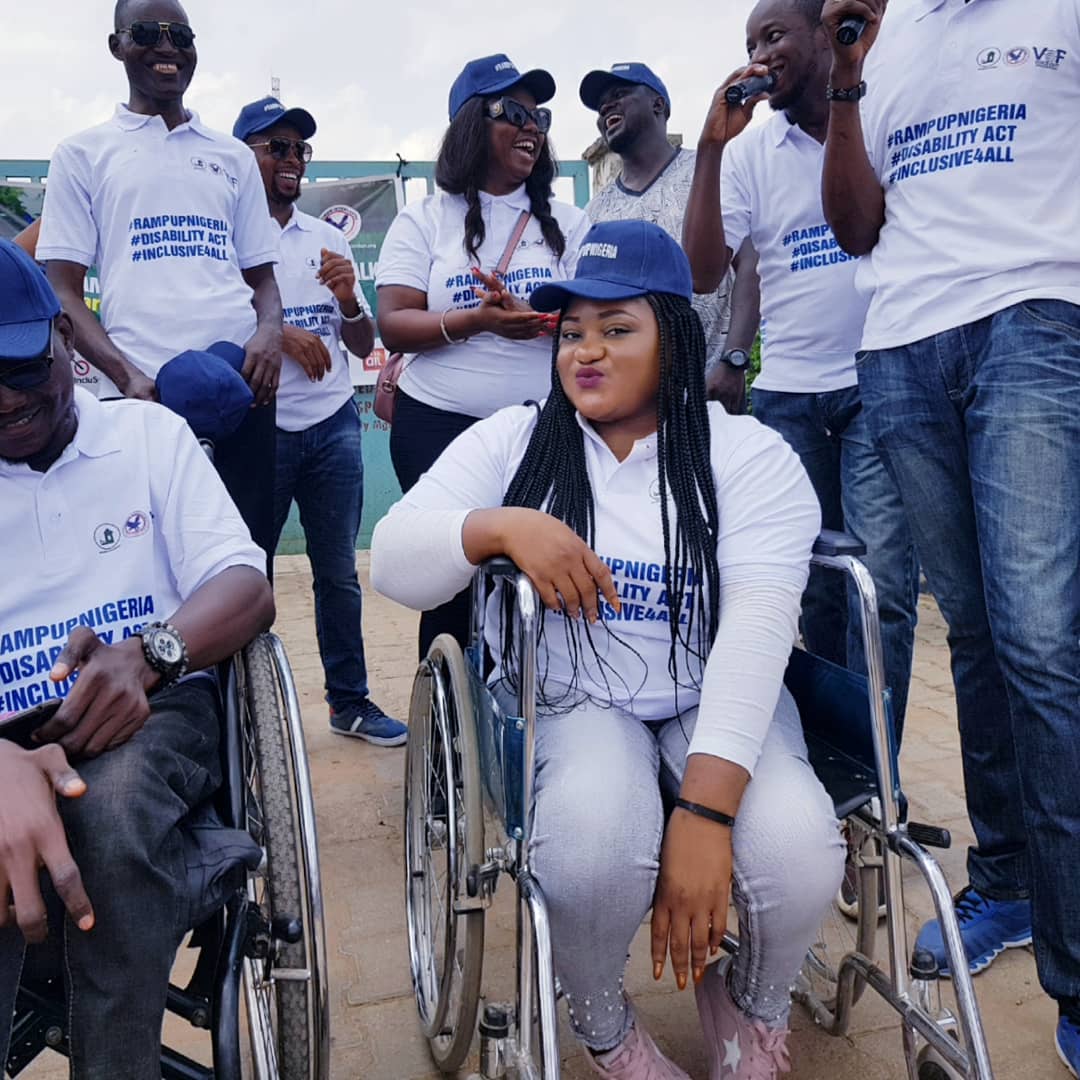
What Can Individuals Do?
Blessing believes ensuring that discrimination against persons with disabilities is a thing of the past, is one thing we must all come together to achieve.
“It’s just changing our perception. It comes with education. Just educate people around you when they say things that are obviously mean. Sometimes they are deliberate or out of ignorance. Educate people to show empathy and emotional intelligence. Also, educating people about the rights of persons with disabilities. That persons with disabilities are not objects of pity, they are not a curse from God or a burden to their families or society or “things” you hide away at home. They’re not “things” you need to “fix”. You don’t have to push them towards miracle crusades when you see them, she added.
She also believes accessibility is another transformative tool for people living with disabilities. “If society can be accessible, beyond anything else, seeing people with disabilities participating generally in the society will help to quell some of these perceptions about disabilities. When you grow up seeing a person with disability going to school and/or working, as well as being involved in societal decision-making, you begin to accept it, knowing that it is okay… So yes, education, representation, and accessibility, will help thwart discrimination against differently-abled individuals.
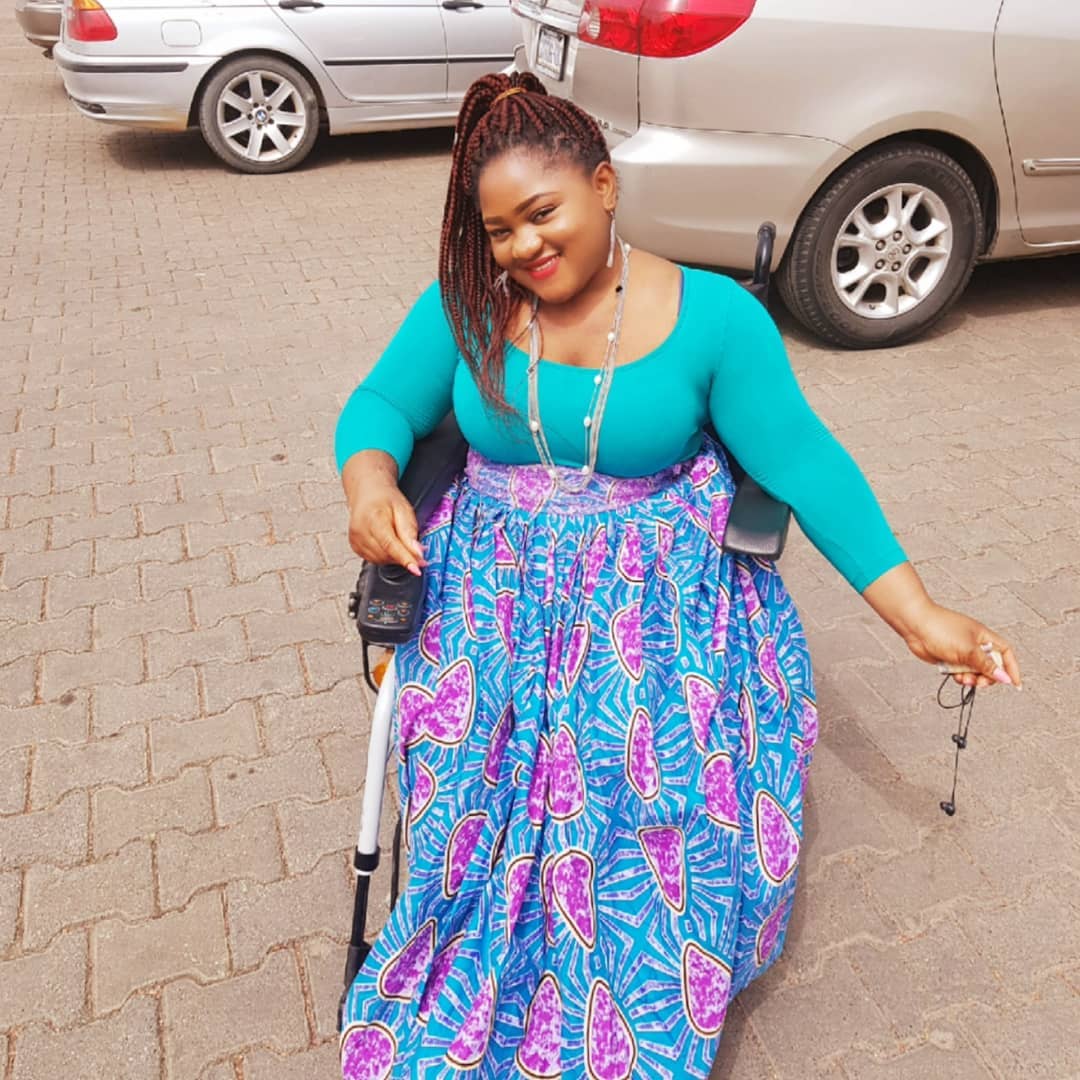
What Can Governments Do?
I’m 2019, the Prohibition Against Discrimination of Persons with Disabilities Bill or the Disability Rights Bill was signed into Law in Nigeria. This law is to protect the rights of persons with disabilities in terms of accessibility, education, employment, public services, among others. The Law also prescribes fines for people who contravene the dictates of the Act.
“Now, that has greatly helped in one way – at least there’s a law we can fall back on when people’s rights are being trampled upon,” Blessing said, adding “but we have a long way to go in terms of implementation.”
“I remember when we were trying to disseminate the information about this law to the public, I went to visit some of the key stakeholders involved in this, and found out that most of their offices weren’t accessible. We can see that the problem starts from within. So, governments should start from themselves and ensure that offices are accessible to persons with disabilities. They should also employ persons with disabilities in agencies or departments responsible for implementing and monitoring complaints with these laws. So that when people with disabilities come to these offices, someone there can understand their situation, and find the best ways to solve their problems.”
Blessing’s final words on this sums all of her work advocating for people with disabilities best: “There are over 25 million Nigerians with disabilities as of 2019. We have a long way to go and we need to carry everyone along because this is a teeming population that can add value.”
**
IMPACTER by Global Citizen x BellaNaija is throwing the spotlight on Africans making an impact in their countries and beyond. From mitigating the effects of climate change, to providing mental care, building innovative solutions to COVID-19, fighting global poverty, and providing education for all, these impacters are building smart solutions to creating a world that is safe, healthy and equal for all.
Photo Credit: Instagram – @marieblizz


